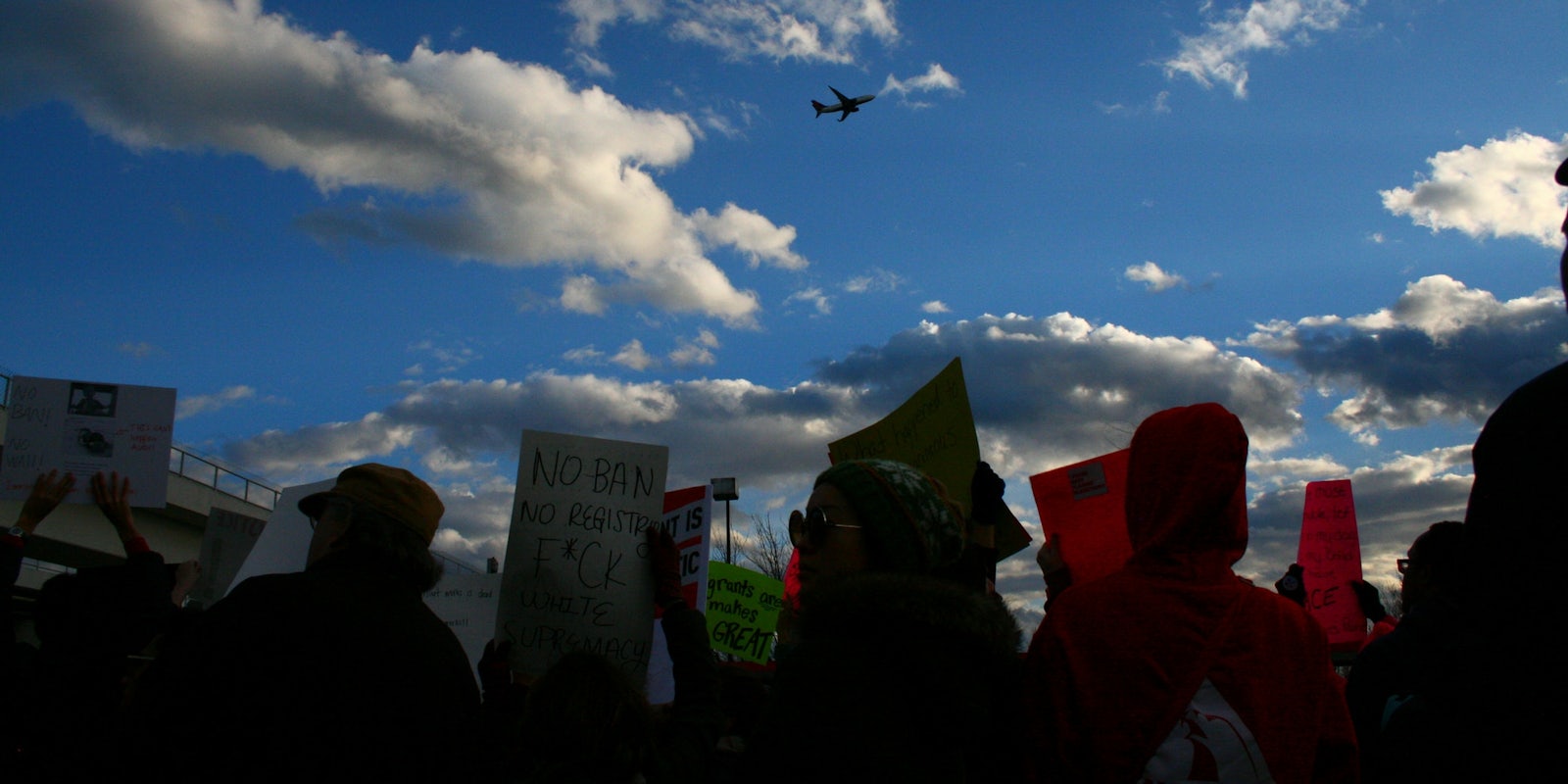U.S. Customs and Border Protection (CBP) stopped 1,903 people for an additional inspection in the nine days following the implementation of President Donald Trump‘s first travel ban. According to documents released under the Freedom of Information Act (FOIA) last week, and reported on by BuzzFeed News, a majority of those stopped were lawful U.S. permanent residents.
According to the documents, 1,457 people stopped for secondary inspections were permanent residents with green cards, a group of people whom Trump didn’t clarify were welcome back into the U.S. under his travel ban of seven Muslim-majority countries. Of the remaining 446 people, at least 134 of them, or more than 25 percent, withdrew their request to enter, requiring them to leave the U.S. immediately.
Under “disposition” for the 312 people who were not lawful permanent residents but did not withdraw their request to enter the country, the document discloses reference codes, but sometimes includes specific responses to a person’s detainment. For example, 10 crew members of a boat were detained on board until it left the U.S. Several groups faced “expedited removal” for “credible fear” after arriving from Mexico.
The ban, issued Jan. 27, 2017, was immediately challenged but was temporarily lifted on Feb. 3, 2017. At the time of the ban’s issuance, the Department of Homeland Security (DHS) did not include lawful permanent residents in the ban but was overruled by the White House, allowing them into the U.S. on a “case-by-case” basis. However, the White House later aligned itself with the department after stating the executive order didn’t apply to lawful permanent residents.
In the year since, the president has signed two following iterations of his travel ban, the most recent from September being held up by U.S. Supreme Court before the court determines its legality. Arguments are scheduled to begin this month.
The documents regarding the citizenship status of those stopped for secondary searches are only part of 30,000 pages of documents released by CBP in regards to more than 100 FOIA requests regarding Trump’s first travel ban targeting Muslim-majority countries.
Just got email from Customs & Border Protection's FOIA office.
— Russ at AltGov2.org [FOIA / anti-secrecy] (@thememoryhole2) March 30, 2018
They've gotten over 100 requests regarding Trump's original "Muslim ban" Executive Order.
They've posted 30,000 responsive pages here:https://t.co/5sBJWxWOduhttps://t.co/6S2VUow11J
With more coming. pic.twitter.com/la9dlRhaoO
H/T Business Insider

